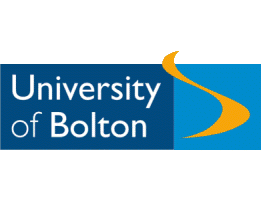Early in my career I spent a lot of time working with public sector institutions in order that they could achieve new things in new ways. I am pleased to say that a lot of that work was very successful and much has been learned about the special role and circumstances of public sector work and public sector workers.
It follows that the centre of our research community will be in public sector change projects; how do we change and to what ends? This concern embraces problems and topics such as organizational change, process methods, change management and innovation. Today, around this fulcrum, I also understand that it is important to think of the social and technological forces that are outside of formal public institutions, but which must inevitably shape the form, function and identity of those institutions over time. Hence, I talk also of social innovation and into this cram the excitement of new ideas around new economics, new social movements and technologies such as decentralized platforms and other aspects of digitization. The future might be very different, and our research community must be prepared to engage with big ideas and then to help shape that future.
It follows from all of this that I have an action-oriented approach to research. Some call this Engaged Scholarship after the work of Van de Ven, but others might cite Action Research from the likes of Kurt Lewin, Peter Checkland and Sue Holwell or David Coghlan. Such approaches are central to my thinking, but I am also interested in a wider range of qualitative approaches as well as quantitative approaches that might sit alongside in a multi-methods arrangement. The important thing is to contest an epistemology that treats academic knowledge as separate to real-world practice. I want them to be embraced as fundamentally the same. After all, we all want our scholarship to make a difference.
Professor Peter Kawalek has worked with many public-sector institutions including a decade-long engagement with Salford City Council in the UK wherein a number of successful (and award-winning) projects were developed. With David Wastell and colleagues at Salford City Council he developed the local government SPRINT method that developed a user-base of over one hundred councils. Alongside, he has worked with Office an Taoiseach in Dublin, the National Health Service (NHS), the Department of Communities and Local Government (London), Cabinet Office (London), Leeds City Council, North Lincolnshire Council, Oldham Council, Lancashire Constabulary, Greater Manchester Police, West Mercia Police & Crime Commissioner and Midlands Engine.
Peter also has extensive experience in the private sector through Siemens AG., SAP AG, IBM, Manchester City FC, New York City FC and Triumph Motorcycles. In the charity sector, he worked with the Royal Commonwealth Society on the Jubilee Time Capsule, an innovative project that marked the Diamond Jubilee of HRH Queen Elizabeth II.
Today, Peter is Professor and Director of the Centre for Information Management at the School of Business & Economics in Loughborough University. He works on topics related to the Digital Economy including Artificial Intelligence and DeFi. He has additional visiting positions at Letterkenny Institute of Technology in Ireland and Deusto Business School. Peter has held and managed over £2.3m in research grants from government and research councils. His work has been published in books and journals including the European Journal of Operational Research, Journal of Information Technology, International Journal of Information Management, California Management Review, International Journal of Public Sector Management, Organization and Management and Journal of Strategic Information Systems,
There is significant literature on public sector change which extends to eGovernment and other forms of innovation. There is also significant demand from within governments and societies to see such change enacted, typically with motivations of greater efficiency, flexibility or accountability. We can draw from such interests and build compelling doctoral research that sits in a tradition of Engaged Scholarship (see above).
There is also newer literature and new practice on more radical forms of social innovation coming from ideas that might be underpinned by economics or social policy, potentially embracing personalised budgets, universal basic income, cooperativism and new forms of work. These are of focus too so that new perspectives can be developed that are both critical of existing assumptions and constructive towards newer practice. Alongside these new social ideas, and still within scope, are technologically-oriented ideas whether these be corporate or institutional such as the concept of the ‘Smart City’ or disruptive such as ideas of decentralized autonomy and platform cooperativism. Again the aim is to be both critical and constructive but to hold to a commitment of engaged, action-oriented and consequential research.
All applicants to Hume must satisfy one of the following conditions in order to be considered for an interview with a Programme Director or Tutor.
1. A good Masters degree from a recognised university, OR
2. Ten or more years’ experience in a related area of work, plus an undergraduate degree of high standing.
In addition, in all cases where a student has not previously completed a degree (undergraduate or postgraduate) taught in English, it will be necessary to provide one of the following:
• IELTS – Overall score 6.5. No less than 6.0 in any section.
• TOEFL – Overall score 90 with minimum scores of 21 for writing, 21 for listening, 22 for reading and 23 for speaking.
• Pearson – 58 with no less than 55 in all communicative skills
Duration for the full-time programme is normally 3 -4 four years with a fee of £12,000 per year;
Duration for the part-time programme is normally 5 -6 years for a fee of £6,000 per year.



